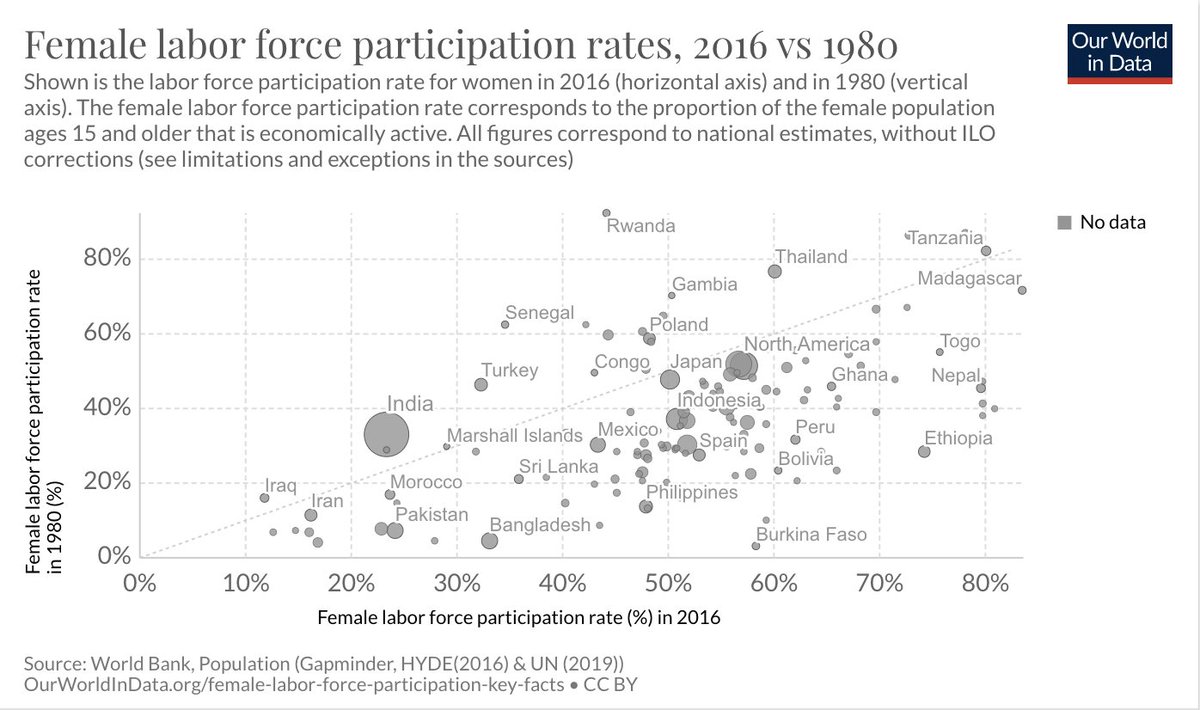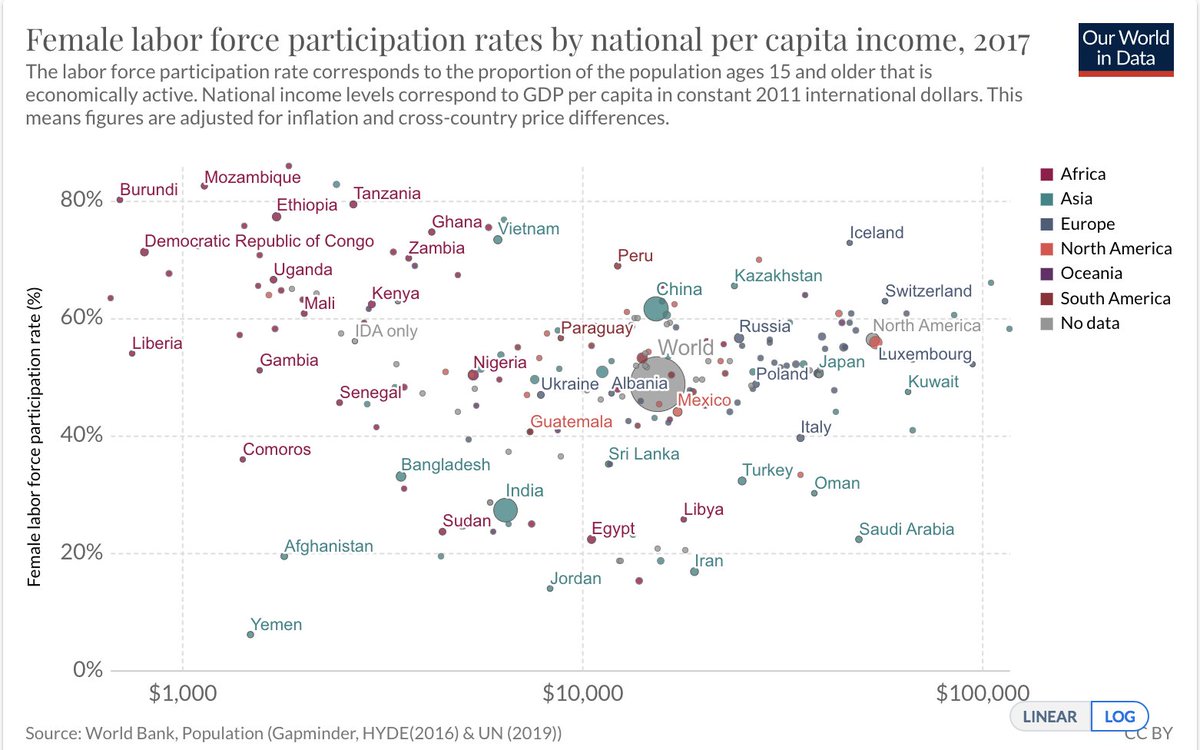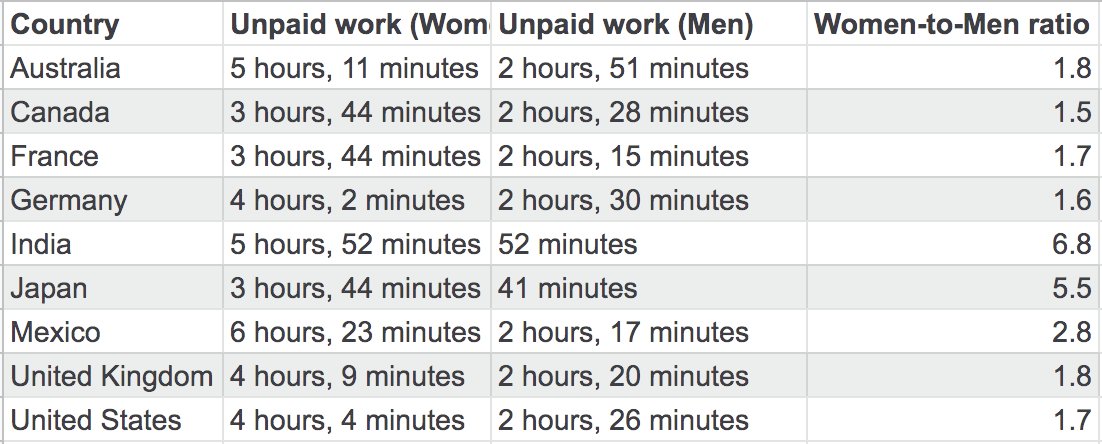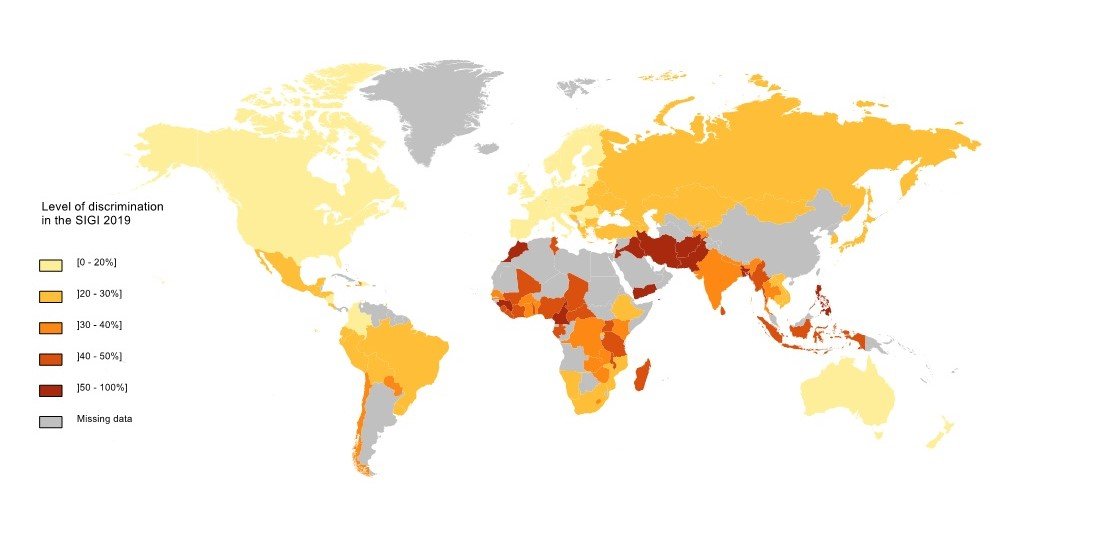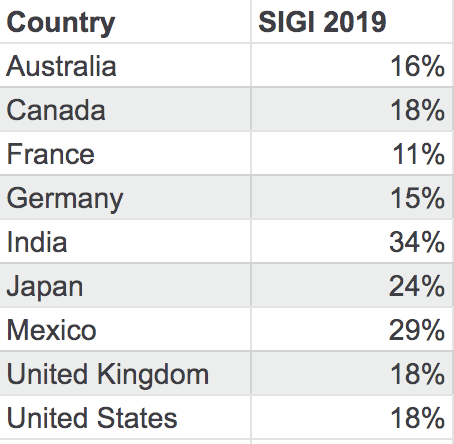Like any other crisis, this one will present its own set of opportunities - online education, remote work, white collar gig economy etc. I expect one of these could be an opportunity for us to increase women workforce participation.
Thread. (1/n)
Thread. (1/n)
Women participation in the economy is more important than you think probably. Here is a thread on the What, Why, How. This is an India focused view although principles may apply elsewhere.
(2/n)
(2/n)
Firstly, why is this an important topic to discuss?
Female labor force participation (FLFP) has a huge impact on economic growth. If you improved FLFP, you could add 5% to GDP in US, 9% in Japan and 30%+ in Egypt (Aguirre et al, 2012). We aren& #39;t talking a few basis pts.
(3/n)
Female labor force participation (FLFP) has a huge impact on economic growth. If you improved FLFP, you could add 5% to GDP in US, 9% in Japan and 30%+ in Egypt (Aguirre et al, 2012). We aren& #39;t talking a few basis pts.
(3/n)
FLFP doesn& #39;t just raise GDP/capita, it also improves the & #39;quality of household earnings& #39;. You can see higher focus on education, lower domestic violence etc.
Women participation is the Swiss knife for solving a nation& #39;s socio-economic problems.
(4/n)
Women participation is the Swiss knife for solving a nation& #39;s socio-economic problems.
(4/n)
So where is India in all of this?
It sucks. Period. Here are the facts anyway - India ranks 120th on women participation in workforce. Our FLFP is 27% and it has actually been falling over the last two decades.
Women contribute to 17% of India& #39;s GDP vs. 40% of China.
(5/n)
It sucks. Period. Here are the facts anyway - India ranks 120th on women participation in workforce. Our FLFP is 27% and it has actually been falling over the last two decades.
Women contribute to 17% of India& #39;s GDP vs. 40% of China.
(5/n)
Btw FLFP is a complex subject. FLFP vs. GDP/capita is a U-shaped curve.
Poor countries (Rwanda, Congo) have high FLFP due to strong income effect & weak substitution effect. These women have no choice but to work. OTOH, Iceland and Switzerland have very high FLFP too.
(6/n)
Poor countries (Rwanda, Congo) have high FLFP due to strong income effect & weak substitution effect. These women have no choice but to work. OTOH, Iceland and Switzerland have very high FLFP too.
(6/n)
India has an opportunity to climb up the curve, as do Bangladesh, Sri Lanka, Egypt. And this will improve outcomes for both the economy and the society.
So why don& #39;t we? What& #39;s holding us back? Why do we suck at this? Answer is as much cultural as anything else.
(7/n)
So why don& #39;t we? What& #39;s holding us back? Why do we suck at this? Answer is as much cultural as anything else.
(7/n)
India sucks for women partly because men don& #39;t care enough about supporting them.
Look at this metric - "Time spent on unpaid work daily" (incl. all kinds of household chores, child care etc.)
(8/n)
Look at this metric - "Time spent on unpaid work daily" (incl. all kinds of household chores, child care etc.)
(8/n)
The first thing you& #39;d notice is that the entire world sucks at this. Women are working 1.5-2x harder on unpaid work vs. the men. This includes Australia, Canada, US, UK - all torchbearers of gender equality. But of course, India takes the cake. NUMERO UNO.
(9/n)
(9/n)
Indian women work 7x more on unpaid work vs. men. SEVEN TIMES. Men spend just 52 minutes on unpaid work.
Amongst the major economies, nearly none have the women working MORE hours on unpaid work than India and nearly none have the men working LESS hours on unpaid work.
(10/n)
Amongst the major economies, nearly none have the women working MORE hours on unpaid work than India and nearly none have the men working LESS hours on unpaid work.
(10/n)
Our society is at the heart of this. There is actually a metric called SIGI (Social Institutions & Gender Index) that measures discriminatory nature of social institutions. Based on levels of discriminatory family code, restricted physical integrity, civil liberties etc.
(11/n)
(11/n)
Again amongst the major economies, India ranks dead last on SIGI.
India SIGI of 34% places it right between Ghana and Tajikistan. Let that sink in.
Discriminatory family code is the biggest contributor to our poor SIGI where we have Myanmar, Angola, Lesotho for company.
(12/n)
India SIGI of 34% places it right between Ghana and Tajikistan. Let that sink in.
Discriminatory family code is the biggest contributor to our poor SIGI where we have Myanmar, Angola, Lesotho for company.
(12/n)
So what can we do about this? And why is this crisis an opportunity? (No eye rolls, the cliche does fit).
So many of our usual excuses aren& #39;t valid now. We are finding that remote work is as productive. We are able to balance child care and professional commitments.
(13/n)
So many of our usual excuses aren& #39;t valid now. We are finding that remote work is as productive. We are able to balance child care and professional commitments.
(13/n)
Freelancing could become common esp as companies search for flexible cost structures in the face of volatility.
All of this can really help women get into the workforce. If they wanna step up/down on professional pace - project based assignments could allow that.
(14/n)
All of this can really help women get into the workforce. If they wanna step up/down on professional pace - project based assignments could allow that.
(14/n)
A talented female dev could work remotely for 6-8 hrs a day while supporting the household. She could do this even if the disproportionate burden of child care falls on her. Women are resilient that way :)
Women need opportunities. Companies need to give them those.
(15/n)
Women need opportunities. Companies need to give them those.
(15/n)
At home, men do need to step up. BJP (Bartan Jhadu Pocha) is low complexity, you can do it. And your boss is doing it too, so you won& #39;t lose your prestige there.
More importantly, men need share the cognitive load of running the household. And not wait for instructions.
(16/n)
More importantly, men need share the cognitive load of running the household. And not wait for instructions.
(16/n)
Finally, women need to push through during this key phase. Size of our ambition will partly determine where we get, where India can reach, what the world can be.
Nothing stirs a movement like a few role models. And we have plenty already - Sindhu, Mary, Indra Nooyi.
(17/n)
Nothing stirs a movement like a few role models. And we have plenty already - Sindhu, Mary, Indra Nooyi.
(17/n)

 Read on Twitter
Read on Twitter